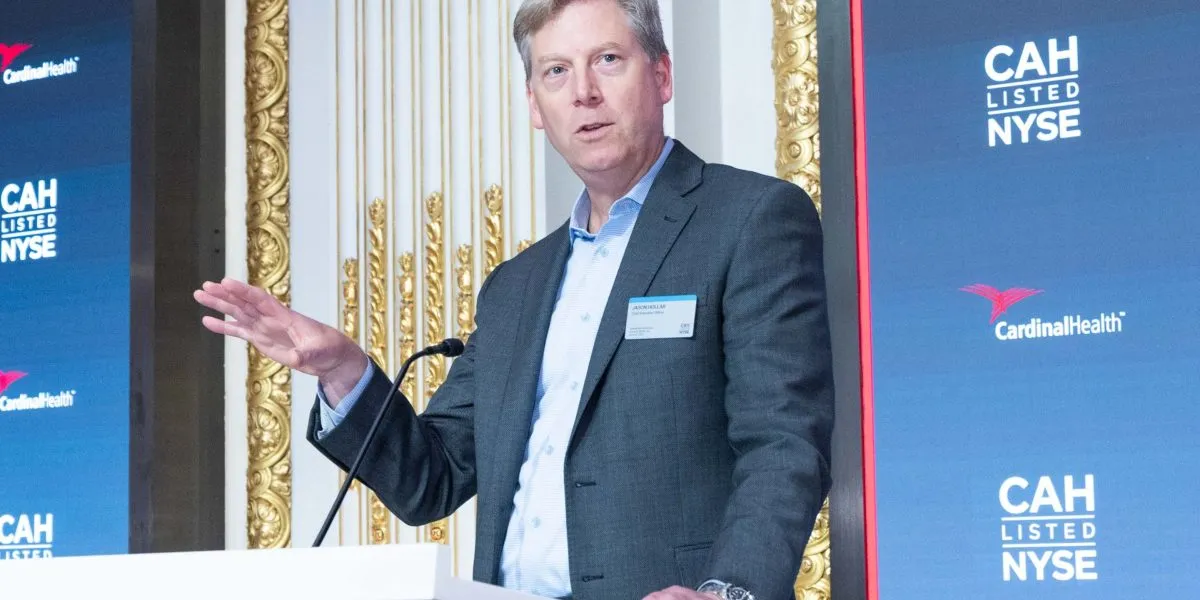
In a recent interview with Fortune, Cardinal Health CEO, Hollar, outlined his philosophy on change management, emphasizing the importance of relentless simplification and ruthless prioritization. Hollar specifically chose the term 'ruthless' to convey the urgency of the situation at Cardinal Health, where certain business segments were costing the company hundreds of millions of dollars annually. Under his leadership, Cardinal Health has seen significant shifts aimed at revitalizing the company's fortunes.
Before Hollar assumed the role of CEO, Cardinal Health faced substantial financial difficulties. The company's non-GAAP operating earnings fell by 12%, dropping from $2.3 billion in 2021 to $2 billion in 2022. Similarly, non-GAAP net earnings saw a decline of 13%, from $1.6 billion to $1.4 billion during the same period. This alarming trend prompted Hollar to devise a decisive strategy to restore Cardinal Health to its previous success.
On his very first day as CEO, Hollar implemented a rigorous plan designed to cut underperforming business segments and streamline operations. This approach has already proven effective, with the company’s operating earnings for Q3 of the 2025 fiscal year reaching an impressive $730 million. Surprisingly, rather than facing resistance, Hollar found that the staff at Cardinal Health was eager for an overhaul, indicating a strong desire for improvement among employees who were frustrated with the company’s past performance.
Turning around a legacy company like Cardinal Health, which has been in operation for nearly 55 years, is no small task. Hollar’s ruthless approach provided the necessary momentum to steer the healthcare giant back on course. Initially joining Cardinal Health as CFO during the tumultuous COVID-19 pandemic, Hollar quickly recognized the operational challenges stemming from prior leadership decisions and product liabilities, including issues with opioids. Armed with this knowledge, he swiftly took action by exiting unproductive product lines and divesting from a significant number of countries.
Hollar’s decisive measures included the sale of Cardinal Health’s non-healthcare portfolio and a complete revamp of the Medical segment, which had incurred a staggering $16 million loss in just one quarter prior to his arrival. By increasing capital expenditures and focusing on specialty growth initiatives, Hollar set the stage for recovery. Notably, during his first 18 months, he chose not to engage in any significant mergers and acquisitions (M&A), instead prioritizing the optimization of existing products and client relationships.
Beyond operational changes, Hollar recognized the need to boost employee morale. While the workforce at Cardinal Health was comprised of dedicated individuals, the recent losses had left them feeling disheartened. To reinvigorate the team, Hollar emphasized the importance of accountability, stating, “There’s one value we don’t show up with every single day, and that’s accountability. That’s the one we have to work on.” He reassured employees that the company’s core values and mission would remain intact; instead, the focus would be on living up to those ideals.
To further demonstrate his commitment to change, Hollar implemented a strategic leadership restructuring. He separated three of his eight direct reports, eliminating two roles entirely and adding three new positions. This rapid personnel transition served as a clear signal to employees that Hollar was serious about his vision for the future. “I demonstrated to the team that these are a lot more than happy words; these are our actual actions,” Hollar stated, highlighting his dedication to the new strategy.
Thanks to these concerted efforts, Cardinal Health has successfully executed $5 billion worth of M&A in the last 18 months, proving that Hollar’s ruthless prioritization and commitment to accountability are paving the way for a brighter future for the company.